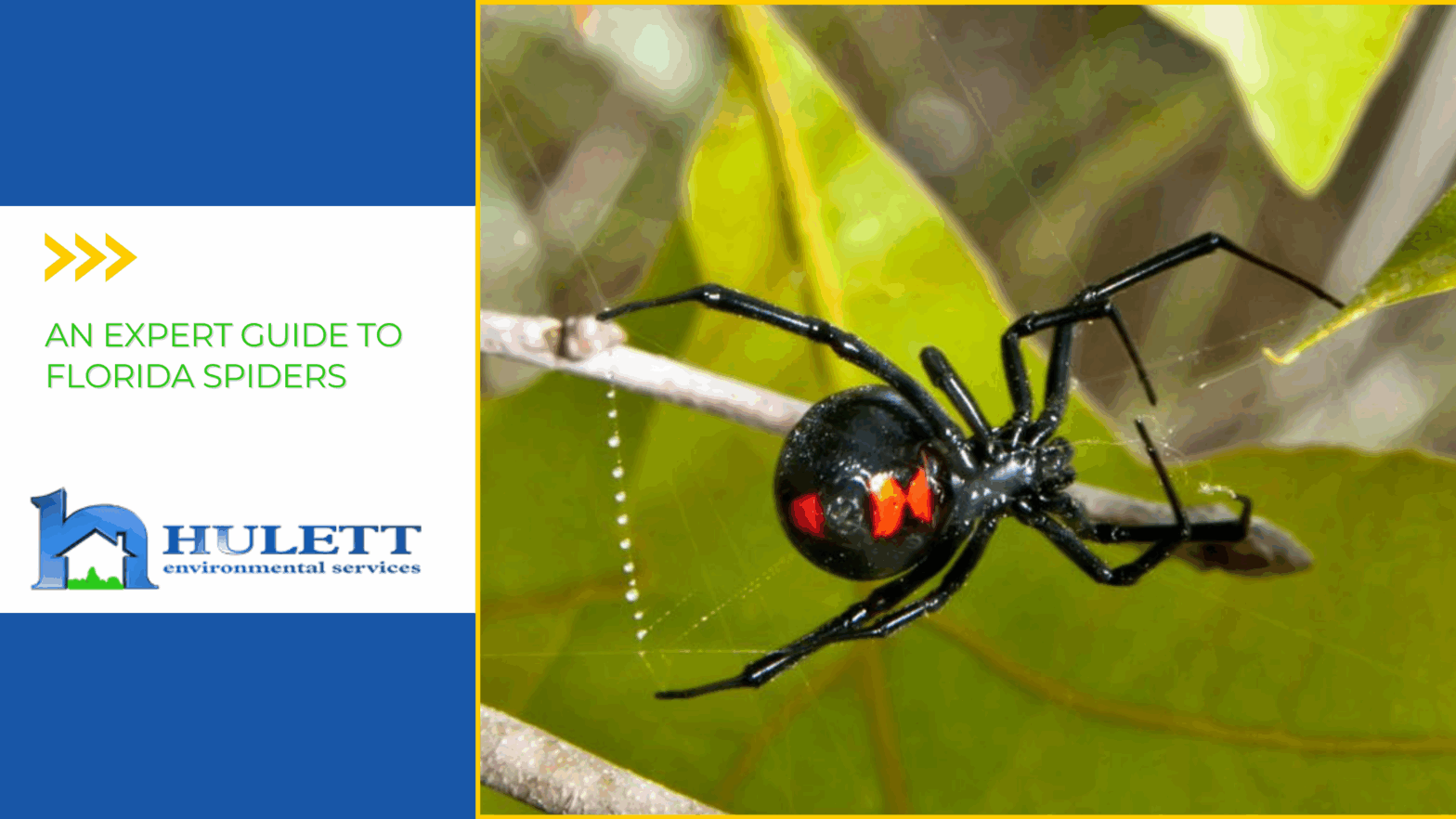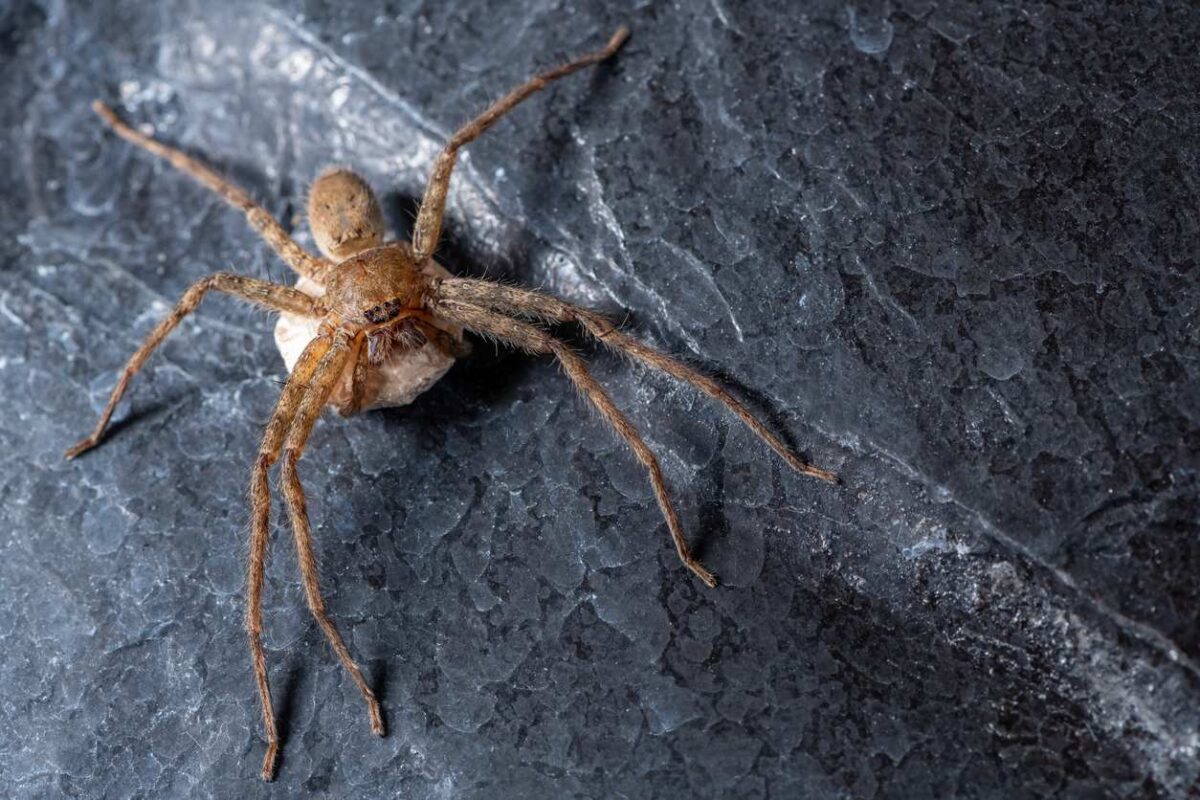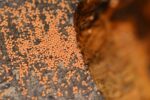
An Expert Guide to Florida Spiders
There are dozens of fascinating species of Florida house spiders, and while most are relatively harmless, two stand out from the rest as the most dangerous. Their bites can cause serious medical issues, especially for young children, older adults, or anyone with underlying health conditions.
That doesn’t mean every spider you see needs to be a cause for alarm, but a little knowledge and the proactive approach of a Hullet pest control expert can go a long way.
Let’s zoom in on the black widow and brown recluse to cover everything you need to know to stay secure.
Brown Spiders in Florida: Recluse or Not?

Several common Florida spiders are brown, but there’s really only one to be concerned about. The huntsman spider is often mistaken for a threat, and it’s not surprising, considering that they can grow to 6 inches across, but they’re relatively harmless to humans.
Brown recluse spiders, on the other hand, are far more elusive. Compared to other species, they’re shy and tend to stay tucked away in quiet, undisturbed spaces like attics, storage boxes, and crawl spaces.
If you think you’ve found one, check for a violin-shaped marking on its back, along with uniformly colored legs and a lack of distinct banding. Brown recluses also have six eyes arranged in three pairs, unlike most spiders, which have eight.
While it is less likely to spot them in Florida than in other states, they maintain a strong presence in the panhandle, so it’s worth knowing what to look for in case these spiders hitch a ride to South Florida through nursery plants, landscaping materials, vehicles, moving boxes, outdoor furniture, or transportation.
Florida Spider Identification for Black Widows
Black widows and brown widows are not as shy as brown recluse spiders, and while you may be more likely to encounter them, they’re also easier to identify.
The most recognizable feature of a black widow is the red or orange hourglass shape on the underside of its abdomen. Their bodies are shiny and jet black, and they tend to hang upside down in irregular, messy webs, which makes the hourglass mark easy to spot.
Females are larger than males and are responsible for nearly all medically significant bites, and you’ll often find black widow spider webs in dark, quiet areas like garages, woodpiles, under outdoor furniture, or any place where prey is plentiful and disturbances are rare.
Are Black Widows Really That Dangerous?
We’re not going to keep you in suspense on this one. Yes, black widows are dangerous, and you should avoid them whenever possible. However, that doesn’t mean they’re always deadly.
Black widow venom contains a powerful neurotoxin called latrotoxin, which can cause severe cramps, muscle spasms, and pain across the entire body, and a host of other nervous system-related issues. Despite the extreme discomfort, bites are rarely lethal, and most people will fully recover after receiving medical attention.
Why are Black Widows So Well-Known
Their powerful venom has contributed to the infamy of black widow spiders, but that’s not the only reason why they are so well-known and feared.
Black widows like to spin their webs in dark areas, often above places where their food, including everything from flies to other spiders, is common. In rural areas, especially in the absence of indoor plumbing, that means black widows love outhouses.
The neurotoxin that may otherwise be non-lethal is far more potent when a person is bitten in a nerve-dense area. This is why so many deadly black widow bites occur in mobile restrooms, especially at music festivals.
Most black widow bites are non-lethal. However, if you work at a construction site, live in an area without indoor plumbing, or use outdoor event restrooms, take care to avoid bites, as these can pose the greatest risk.
Get Professional Spider Control and Prevention From Hulett
Spider infestations don’t have to be large to cause problems. Even just a few spiders in the wrong place can lead to painful bites, unwanted webs, or a growing population that’s harder to manage over time.
We’ll look beyond the places where spiders are present today to identify where they are most likely to show up next, helping stop the problem before it spreads.
We can help you take back your space from unwanted eight-legged guests. Just call Hulett to schedule a detailed inspection from our trained spider control team..




